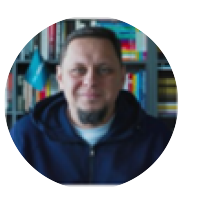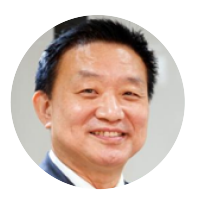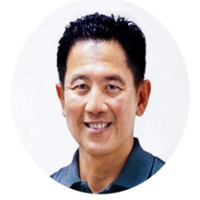- OVERVIEW
- SPEAKERS
- AGENDA DAY 1
- AGENDA DAY 2
- AGENDA DAY 3
- AGENDA DAY 4
- AGENDA DAY 5
- RELATED
The World Bank Group’s Digital Academy Program focused on Leveraging Digital Transformation for Resilience. This event was held from December 2-6, 2024, at the Intercontinental Tokyo Bay, in partnership with the Government of Japan.
The Tokyo Digital Academy was supported by the Government of Japan as well as Digital Development Partnership 2.0, a World Bank initiative supported by development partners aiming to advance digital transformation in low- and middle-income countries by building strong digital foundations and enablers while facilitating use cases for digital economies to thrive.
The program explored how digital technology could enhance resilience against climate change, public health emergencies, and economic disruptions while fostering social and economic inclusion. It also examined policies, practices, and technologies to strengthen the resilience of critical digital infrastructure.
Participants had the opportunity to engage with global experts, industry leaders, and policymakers through seminars, site visits, peer-to-peer knowledge exchanges, and case studies. Key themes included AI for Resilience, Resilient and Inclusive Digital Connectivity, Cloud for Resilience, and Digital Public Infrastructure for Resilience.
This was an invitation-only academy.
WHEN: December 2-6, 2024
WHERE: Tokyo
Day 1: Monday, December 2, 2024
Start-End |
Title /Description |
Speakers | |||
09:00-09:30 (30 min) |
Registration and Refreshments |
||||
Opening Session |
|||||
09:30-10:00 (30 min) |
Welcome and Introduction |
Manuela Ferro, Regional Vice-President, EAP, World Bank Sangbu Kim, Takuo Imagawa, Vice-Minister, Ministry of Internal Affairs and Communications Takahiro Tsuda, Director, Ministry of Finance Asami Okahashi, World Bank |
|||
10:00-11:00 (60 min) |
Fireside Chat: Global and Regional Digitalization Trends and Innovations for Resilience |
Moderator: Christine Zhenwei Qiang, World Bank Sangbu Kim, Vice President, Digital, World Bank Wilson White, Global VP, Government Affairs & Public Policy, Google Eigo Nomura, Director-General for International Affairs, MIC Maya Horii, Senior Partner, McKinsey & Company |
|||
11:00-11:20 (20 min) |
Networking Break (speed dating) |
Asami Okahashi, World Bank |
|||
11:20-12:15 (55 min) |
Interactive Breakout Session | Moderator: Peter Kusek, World Bank Kamal Siblini, World Bank |
|||
12:15–13:15 (60 min) |
Lunch |
||||
Module 1. AI for Resilience Objectives: 1. Increase comfort with key AI terminology, foundational prerequisites for local AI ecosystems, and AI risks. 2. Identify promising, high-impact AI use cases relevant for resilience. 3. Build awareness of the World Bank’s emerging client offering on AI. 4. Participants will return to their countries with:
|
|||||
13:15-14:15 (60 min) |
1.1. AI Basics: Thrills or Chills |
Martin Percy, Inclusive AI Project |
|||
14:15-14:45 (30 min) |
1.2. AI Crash Course: Governing AI for Resilient Systems | Sharmista Appaya, World Bank | |||
14:45-15:45 (60 mins) |
1.3. Creating Trust in AI: Policy Perspectives (Governments) |
Moderator: Peter Kusek, World Bank Bakhtiyer Rizayev, Deputy Director of Single Integrator UZINFOCOM, Uzbekistan Yoichi Iida, Director of International Research and Policy Coordination, Ministry of Internal Affairs and Communications of Japan. Jong-Sung Hwang, President of the National Information Society Agency, Govt. of Korea. Shri Nand Kumarum, Join Secretary and CEO, National e-Governance Division (NeGD), Government of India Wilson White, Global VP, Government Affairs & Public Policy |
|||
15:45-16:15 (30 min) |
Networking Break |
||||
16:15-17:15 (60 min) |
1.4. AI in Action: Use Cases for Resilience (Private Sector Demos) |
Reuben Zotz-Wilson, Lead Data Scientist, Hala Systems Dr. Anvar Narzullaev, CEO, Mohirdev Online Education Platform Jinjoo Kim, International Cooperation Manager, SIA Analytics Aditya Nayan, WadwaniAI |
|||
17:15-18:00 (45 min) |
1.5. AI Roadmap
|
Kamal Siblini, World Bank All Client Participants |
|||
18:30-20:30 |
Welcome Reception | ||||
| Start-End | Title/Description | Speakers (Organization) |
Module 2. Resilient and Inclusive Digital Connectivity Objectives: 1. Build comfort with key Resilient Connectivity Networks terminology, foundational prerequisites and best practices 2. Identify promising, high impact use cases relevant for local context in the light of market innovations 3. Build awareness of the World Bank’s client offering on Resilient Connectivity Networks 4. Participants will return to their countries with: a. FAQ primer on regulatory tools b. List of action items for their country based on SWOT analysis. |
||
09:00-09:15 (15 min) |
2.1. Build safe and resilient telecom networks: Why it matters | Moderator: Thomas Chalumeau, World Bank Seth Ayers, World Bank Yasuhiro Otsuka, MIC |
9:15-9:50 (40 min) |
2.2. Investing in Core Fiber Optics Networks and redundancy | Moderator: Thomas Chalumeau, World Bank Kei Ando, NTT Docomo Hideo Tomioka, Rakuten |
9:50-10:40 (50 min) |
2.3. Resilient Connectivity Networks in Action: evaluate, measure and monitor telecom networks resilience | Thematic Breakouts All participants |
10:40-11:10 (30 min) |
Networking Break |
|
11:10-11:45 (35 min) |
2.4. Resilient Connectivity Networks in Action: Market Innovation and new-generation networks |
Moderator: Thomas Chalumeau, World Bank |
11:45-12:20 (35 min) |
2.4. Connect the Unconnected: investing in low profitable areas |
Moderator: Thomas Chalumeau, World Bank |
12:20-13:00 (40 min) |
2.5. Resilient Digital Connectivity Roadmap |
All participants |
13:00–14:00 (60 min) |
Lunch |
|
Offsite Networking (3 options to choose from) |
||
Start-End |
Title /Description |
Speakers |
09:00-09:05 (5 min) |
World Bank Leadership Remarks |
Axel van Trotsenburg, World Bank |
Module 3. Cloud for Resilience
|
|||
09:05-9:35 (30 min) |
3.1. Keynote: Cloud as an Enabler for Digital Transformation and Resilience |
Cheow Hoe Chan, Director, APAC Public Sector, Google Cloud |
|
9:35-10:45 (70 min) |
3.2. Cloud for Resilience: Use Cases
|
Moderator: Chris Tullis, World Bank Takamasa Morishima, Partner Relationship Expert, KDDI Oleksandr Zakusylo, Deputy Director, Directorate of Electronic Registers, Ministry of Digital Transformation of Ukraine May-Ann Lim, Emeritus Director, Asia Cloud Computing Association Seth Ayers, Senior Digital Development Specialist, World Bank Bryce Boland, Head of Security, ASEAN, AWS |
|
10:45-11:15 (30 min) |
Networking Break |
||
11:15-11:55 (40 min) |
3.3 Interactive Case Study Guided breakout discussion of a case study for participants to identify resilience development challenges and opportunities associated with cloud. |
Chris Tullis, World Bank Seth Ayers, World Bank All Client Participants |
|
11:55:12:20 (25 min)
|
3.4. How Governments Can Adopt Cloud · Providing overview of Cloud concepts and trends · Learning how Cloud helps to strengthen country resilience, including climate adaptation, disaster response and recovery, and fragility and conflict. · Learning Cloud Enablers; |
Chris Tullis, World Bank |
|
12:20–12:35 (15 min)
|
3.5. Cloud Roadmap Participants to identify resilience development challenges and opportunities associated with cloud in their own country. |
Chris Tullis, World Bank
|
|
12:35–13:30 (55 min) |
Lunch
|
|
|
Start-End |
Title/Description |
Speakers | |
Module 4. Resilient and Inclusive Digital Public Infrastructure
Objectives:
Through this session, participants will gain a clear understanding of the “digital public infrastructure” approach to digitalizing services across sectors—including climate adaptation and disaster response—learn from peers about what has worked well and common challenges and identify concrete next steps to improve DPI in their own countries to boost resilience.
|
|||
13:30-14:00 (30 min) |
4.1. DPI Crash Course | Julia Michal Clark, World Bank |
|
14:00-14:50 (50 min) |
4.2. DPI in Action: Part I (Core DPI) | Moderator: Julia Clark, World Bank
HE Cheang Vutha, Deputy Secretary General of the Digital Government Committee, Cambodia (verify.gov.kh) |
|
14:50–15:20 (30 min) |
Networking Break |
||
15:20-16:00 (40 min) |
4.3. DPI in Action: Part II (Use Cases) |
Valeriia Koval Deputy Head of E-Services Development Department (Diia), Ukraine |
|
16:00-17:00 (60 min) |
4.4. DPI Roadmap |
Moderator: Julia Clark, World Bank |
|
End of Day 3
Day 4: Thursday, December 5, 2024
Start-End |
Title / Description |
Speakers |
Site Visit (4 options to choose from) |
||
Morning |
1. Tokyo Metropolitan Government (Fish Market) - 15 people Providing an overview of how sanitary inspections are conducted using digital technology. Highlighting the challenges involved in implementing digital-based inspection systems. 2. Internet Initiative of Japan (Green Data Center) – 15 people Understanding the outside-air cooling system in the data center, designed to reduce air-conditioning power consumption, while working toward achieving carbon offsets. 3. NTT-East (E-city Project) – 30 people Experiencing the development of a recycling-oriented society across diverse fields, including smart agriculture, drone technology, e-sports, and digital art technology. 4. NEC – 15 people Visiting “NEC Future Creation Hub” to explore the potential of technology and the value that it can create, through experiencing NEC’s new digital solutions using Artificial Intelligence. |
|
12:00–13:00 (60 min) |
Lunch |
|
13:00-13:30 |
Debriefing on Site Visit |
Daisuke Hayashi, World Bank |
13:30-14:45 |
Roundtable: Lessons learned from Japanese crisis experiences |
Moderator: Masayuki Furukawa, JICA Emilio Kazuki Wakita, World Bank Masataka Tsuji, Masaru Shigemiya, Tokyo Metropolitan Gov Akira Endo, KDDI Takeshi Nakamura, NTT Data Masugi Inoue, NICT Teppei Sakano, Allum Jun Nakaya, Fujitsu |
14:45–15:15 (30 min) |
Networking Break |
|
15:15-17:15 |
From Learning to Action to Impact | Moderator: Kamal M. Siblini, World Bank |
Day 5: Friday, December 6th, 2024
Start-End |
Title / Description |
Speakers |
|
8:30-11:00 (150 min) |
Action Planning and Prioritization |
Moderator: Kamal M. Siblini, World Bank |
|
11:00-11:30 (30 min) |
Networking Break |
||
11:30-12:30 (60 min) |
Presenting Action Plans |
All Client Participants |
|
12:30-12:45 (15 min) |
Closing |
Casey Torgusson, World Bank |
|
12:45–14:45 (60 min) |
Lunch |
||
Date: December 02 - 06, 2024 ET
Location: Tokyo






































